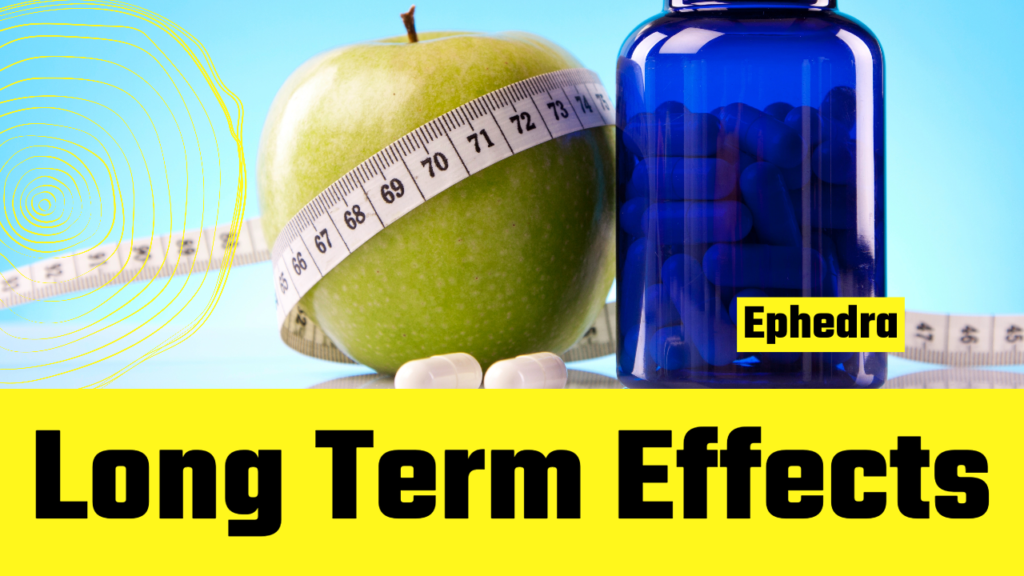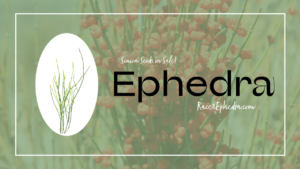Ephedra and its derivative, ephedrine, have long been used in various supplements and herbal preparations for weight loss, increased energy, and improved athletic performance. However, there are growing concerns about the long-term effects and safety of these products. In this comprehensive article, we will explore the potential risks and consequences associated with the use of ephedra and ephedrine.

I. Understanding Obesity and Metabolic Diseases
Obesity and its related metabolic diseases have become a significant global health issue. Excessive energy intake and sedentary lifestyles are often considered the primary factors contributing to these conditions. In an attempt to combat obesity, numerous countermeasures, including exercise, low-fat diets, and weight-loss supplements, have been proposed by scientists and healthcare professionals. Ephedra, a traditional Chinese medicinal herb, has gained attention for its potential weight-loss effects.
Ephedra, also known as Ma Huang, has been used in traditional Chinese medicine for over 5000 years to treat various ailments such as the common cold, asthma, and edema. It contains ephedrine-type alkaloids, with ephedrine being the most abundant and active isomer. Researchers have documented the use of ephedra, either alone or in combination with caffeine, for reducing body weight and fat content, as well as improving metabolic parameters and insulin sensitivity in both obese individuals and otherwise healthy subjects. (1)
II. The Role of Human Genetics and Microbiota
While human genetics play a role in obesity, recent advancements in genomics have highlighted the significance of the human microbiota in understanding this complex condition. The Human Microbiome Project and other extensive microbiome studies have provided valuable insights into the baseline characteristics of a healthy adult microbiome and the variations among individuals. Researchers have observed associations between obesity and specific bacteria populations, particularly an increase in Firmicutes and a decrease in Bacteroidetes. However, conflicting results have been reported in different studies, suggesting the need for further investigation.
Diet is also known to influence the composition of the gut microbial community, and its correlation with gut microbiota is considered a contributing factor in obesity. Alterations in the gut microbiota composition due to dietary changes can potentially impact metabolic processes and body weight regulation. (2)
III. Investigating the Impact of Ephedra on Gut Microbiota
To better understand the potential effects of ephedra on gut microbiota and its correlation with obesity and metabolic markers, a study was conducted. The aim was to examine the shifts in gut microbiota after ephedra intake and explore the relationship with clinical characteristics of the subjects. The findings of this study could provide insights into the underlying mechanisms of ephedra’s anti-obesity effects and offer new avenues for research in the field of ethnopharmacology.
IV. Evaluating the Effects of Mahuang Xixin Fuzi Decoction (MXF)
Mahuang Xixin Fuzi Decoction (MXF) is a classical prescription of traditional Chinese medicine that has been used for centuries to alleviate fever, nasal congestion, and headaches in the elderly. A study aimed to assess the effects and potential mechanisms of MXF on thermal stimulation-induced apoptosis in mouse cardiac myocytes (MCM). The results indicated that MXF inhibited apoptosis through the mitochondrial-mediated signaling pathway, suggesting its potential therapeutic benefits in preventing cellular apoptosis. (3)
V. Safety Concerns Regarding Ephedra and Ephedrine
While ephedra and ephedrine may offer short-term improvements in weight loss and athletic performance, their safety remains a concern. Health Canada has issued warnings regarding the use of over-the-counter supplements containing ephedra or ephedrine due to their potential health risks. Adverse events associated with these substances include cardiovascular events, hypertension, stroke, seizure, psychiatric symptoms, and gastrointestinal issues. The molecular structure of ephedrine is similar to that of amphetamine, and its effects on the cardiovascular and central nervous systems resemble those of amphetamines. (4)
VI. Regulatory Actions and Recommendations
Health Canada has taken regulatory actions to address the safety concerns associated with ephedra and ephedrine. Unapproved herbal preparations containing excessive doses of ephedrine have been recalled, and manufacturers of approved higher-dose preparations are required to submit safety and efficacy data. It is recommended that patients only use approved products with a drug identification number (DIN) and adhere to the recommended dosage limits. Patients should also be warned about the potential serious adverse events associated with the use of products containing ephedra or ephedrine, especially in doses exceeding the recommended limits. (5)
VII. Physician’s Role in Patient Care
Physicians play a crucial role in patient care by inquiring about the use of over-the-counter herbal and dietary supplements, particularly when patients express a desire to lose weight, improve exercise tolerance, or use traditional remedies. Additionally, physicians should be aware of concurrent sources of caffeine, as some combination products may enhance the cardiac and central nervous system effects of ephedrine. Educating patients about the potential risks and adverse events associated with ephedra and ephedrine is essential for promoting their well-being and making informed decisions about their healthcare.
VIII. Conclusion
Ephedra and ephedrine have been widely used in supplements and herbal preparations for weight loss and improved athletic performance. However, their long-term effects and safety remain a subject of concern. Understanding the mechanisms through which these substances affect the body, such as their impact on gut microbiota and cellular apoptosis, can provide valuable insights into their potential benefits and risks. It is crucial for healthcare professionals and regulatory bodies to closely monitor and regulate the use of ephedra and ephedrine to ensure the well-being of individuals seeking weight loss or performance enhancement.



